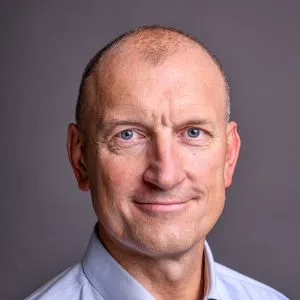Slovenia
Slovenia is the smallest EU member state in Central Europe and has been a member of EU since 2004, the Euro zone since 2007 and the Schengen zone since 2007. The economy of Slovenia is well developed, and the country enjoys a high level of prosperity and stability as well as above average GDP per capita by purchasing power parity at 83% of the EU28 average. Slovenia is a parliamentary democratic republic with a proportional electoral system. Legislative power is represented by Parliament, the official language is Slovenian with Italian, and Hungarian being recognized as co-official languages and accordingly protected in their residential municipalities.
Healthcare budget
$5.4 billion
Inhabitants
2.1 million
GDP per capita
$28.158
Currency
EUR
World Ranking
GDP 83th
Slovenian Healthcare
Healthcare spending in Slovenia is slightly below the EU average, allocating 8.3% of GDP for health spending (vs. EU avg. 9.8%), which is a 12.3 % increase in 2018 vs. 2017 (most recent data available).
The National Health Insurance Institute (ZZZS) is legally mandated to provide compulsory health insurance to all citizens. All newly hired employees must be registered with the ZZZS by the employer. Dependent family members are covered by the employed family members. Self-employed people must contribute a fixed proportion of their after-tax income.
Slovenian pharmaceutical environment
Slovenia is one of smallest pharmaceutical markets in Central Eastern Europe, steadily growing over recent years, in 2019 it was worth 708 million EUR (+4.8% vs. 2018), with Rx products contributing a 464 million EUR share, out of which 179 million EUR was through hospital sales.
The Slovenian drug reimbursement system is based on reference pricing requiring the lowest price from the reference basket consisting of Austria, France, and Germany.
Slovenia is home to an internationally well-established generic drug company Krka (Novo Mesto), while its’ main local competitor in the generic segment, Lek was acquired by Sandoz in 2002.
Access to innovative medicines and orphan drugs is at an extremely high level.
Todays challenges
Expected life at birth is 81.2 years (2017), presenting a 5-year increase since 2000 and is above the EU average.
The healthcare budget is under pressure due to the ageing population, increased use of medicines and introduction of new medicines. Obesity is present in 16% of adults (vs. 15% EU avg.) with 20% of youths being overweight which is becoming nation’s main healthcare alarm.
There is an ongoing shortage of healthcare professionals in the country, especially on the level of general practitioners and nurses.
The expert in Slovenia
Jiri Hermanek
Challenge us with your case and we will show you the possibilities for your product.
Services
Sales and Marketing
Entering the European market is not easy. Up to 51 countries with different healthcare systems. What is your strategy? Apart from the Big-5, what do you do with the other 26 countries? We offer a solution for 26 countries. Sales and marketing is our core business.
Learn moreDistribution
We manage, through our logistic partners with their regional warehouses, the distribution to our region (26 countries). They have the capability to handle the most demanding of specialized product order management, storage, handling and distribution requirements.
Learn moreEarly Market Research
You know that market research is critical. It provides customer insights, competitive intelligence, behavioural tendencies, and product positioning. And market research increasingly is becoming an important component for linking R&D and marketing teams.
Learn moreMarket Access
Achieving reimbursement and getting the right price are the 2 most important drivers for a successful launch of an innovative pharmaceuticals in our part of Europe. Health Authorities in any European country decide individually based on their local regulations, policies, framework, social values and available health care budget.
Learn moreMarket Authorisation
Unlike other regions, in the EU a number of options is available to obtain a marketing authorisation. Centralised at the European Medicines Agency in Amsterdam or decentralised with the individual competent authorities of the member states, each marketing authorisation application procedure has its pros and cons.
Learn morePharmacovigilance
Pharmacovigilance is the science and activities relating to the detection, assessment, understanding and prevention of adverse effects or any other medicine-related problem.
Learn more